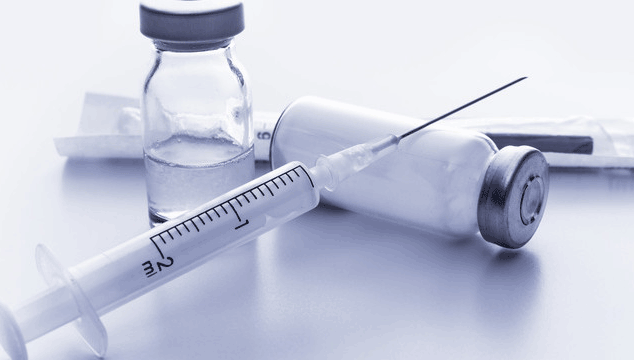![]() The information provided by our expert should not constitute a diagnosis of your condition. Always consult a medical practitioner or healthcare provider for a formal diagnosis. By making use of this content, you agree that ConceiveEasy and the expert assume no liability.
The information provided by our expert should not constitute a diagnosis of your condition. Always consult a medical practitioner or healthcare provider for a formal diagnosis. By making use of this content, you agree that ConceiveEasy and the expert assume no liability.
It was just a few short years ago that it was unheard of to hear someone talking about fertility problems. Whether it be your own family, celebrities on television, or the neighbor down the street. If people had fertility issues and trouble getting pregnant, they kept it to themselves, no questions asked. Claim Your 20 Free Pregnancy Tests – Click Here
Miscarriage, infertility, pregnancy struggles, fertility treatments. None of it was even remotely mentioned just a few short years ago.
Anything even semi related to infertility was kept hush hush, and you would never hear couples just come out and share their stories and experiences.

Fast forward to today. Infertility talk is everywhere. Scroll through your social media news feeds on your Facebook, Twitter, or Instagram and you will hear someone talking about trying to conceive, or some sort of fertility trouble. Watch a daytime talk show, or tune into your local news program. Chances are, you will hear it there as well. Celebrities these days are especially vocal when it comes to voicing their concerns and experiences when infertility is involved.

Think Giuliana Rancic or Jimmy Kimmel, just to name a couple.
Also, it’s not really too uncommon to overhear people speaking out about their fertility issues over dinner, or at a family gathering. All in all, it’s just not as taboo these days to talk about infertility and trying to conceive, and we should all be thankful for that.
All in all, it’s just not as taboo these days to talk about infertility and trying to conceive, and we should all be thankful for that.

So, why is it more common to hear about people’s infertility struggles these days? Perhaps that is because now more than ever, people are experiencing infertility. Did you know that one in eight couples suffer from some sort of fertility trouble?
That is a whopping 12% of all married women who are experiencing some sort of problem when it comes to trying to conceive.
There is no reason to give up hope, however. Experts say that around 85% to 90% of infertility cases are able to be treated with either medications or surgical procedures, and only around 3 to 5% of women who have fertility problems will have to seek out assisted reproductive techniques like in vitro fertilization or surrogacy.

One of the most common questions when it comes to fertility troubles is when exactly is the right time for a couple to seek out fertility help.
Well, doctors say that a couple only has around a 20% chance of getting pregnant in any given cycle.
This is why it is so important to track ovulation and to know exactly when your fertile days are, so that you can have the best possible chance of getting pregnant.
Experts also mention that after trying for a year to get pregnant, approximately 75% of couples do wind up pregnant. For women who are under age 35, doctors recommend seeing a fertility doctor after one full year of trying unsuccessfully to get pregnant.
However, the time frame is a bit different for women who are over age 35. Women who are over 35 should definitely seek fertility assistance if they have been trying to get pregnant for 6 months without any success. This is because women who are over age 35 can have a much harder time getting pregnant, have a much more limited timeframe to get pregnant, and therefore should seek out help a little bit sooner.

If you do need to seek out help from a fertility doctor for help with your issues, don’t be worried. There are a lot of different things that fertility doctors can do to help increase the chances of a couple conceiving. If a doctor thinks that the problem has to do with a woman not ovulating properly, the good news is that there are many options available to help with this. Doctors will begin with various pills to get pregnant before moving onto more invasive and expensive fertility treatments.
The first line of defense is most likely going to be good old Clomid.
Clomid is an oral fertility medication that has been around for more than forty years. It’s a great first choice for women who might not be ovulating properly and might need a little bit of a boost.
Clomid works by stimulating ovulation in women who otherwise have trouble making eggs. It’s actually a very effective medication and works to stimulate ovulation in over 80 percent of the women who take it.

Now, this doesn’t meant that 80 percent of women who take Clomid actually do get pregnant, since its job is to help trigger ovulation, not pregnancy. It works to trigger ovulation in over 80 percent of women who take it. Clomid is usually taken for five days. Doctors usually recommend that women start Clomid on the third or fourth day of their period. There are usually five pills in a set, and women will take all five in one month.

After taking all five of the pills, women should expect to ovulate about a week after taking the final pill. Women should definitely use an ovulation predictor kit to determine whether or not they are ovulating. Sometimes, a doctor will want a woman to come back in to the doctor’s office to confirm whether or not she is ovulating.
Usually, a woman will take Clomid every month for three to six months. If it it determined that a woman is not ovulating on the first dosage of Clomid (which is usually 50 mg), a doctor might choose to increase the dosage up to around 150 mg for a few months. Luckily, this doesn’t usually have to happen, because somewhere around 60 to 80 percent of women are successful with Clomid on the first go-around.

The good news about Clomid is that there are not usually very many side effects. The side effects that women who take this drug do experience are very mild. Some women report bloating, sore breasts, nausea, headaches, hot flashes and blurry vision.
It’s actually a little bit strange that the side effects of Clomid can actually mimic the symptoms of pregnancy, but hey, that’s how it goes!
Another important thing to know about Clomid is that it can actually sometimes have a negative effect on cervical mucus. Sometimes, Clomid has sort of a drying effect on cervical mucus, which means that you might not see the optimal “egg white” cervical mucus that we have come to expect when we are looking for ovulating. This can actually make it harder for the sperm to reach the egg, so many women have to also worry about that when they take Clomid. Preseed fertility lubricant or Robitussin can help keep you properly lubed.

Another thing that women who take Clomid have to contend with is the possibility of having twins. Clomid and other similar fertility drugs make it more likely for women to conceive twins. This is because when a woman takes Clomid or another similar drug, it can actually over-stimulate the ovaries, causing them to release two (or more!) eggs instead of one in a given month. If these eggs are fertilized at the right time, this can make a woman pregnant with twins or even higher level multiples.

So, just how common are Clomid twins? The truth is, not that common.
While “regular” twins (conceived without fertility medication) occur in about 3 percent of all births, women who conceive with Clomid actually have around a 7 percent chance of conceiving twins. So, as you can see, Clomid increases the chance of having twins, but not drastically.

Although Clomid is usually extremely effective in taking care of any ovulation issues that a woman might be suffering from, it’s isn’t a “cure all.” Sometimes, Clomid just doesn’t work. So, what happens in those situations where women might need something a little more potent or a little more powerful than what Clomid can provide?
The next “step up” from Clomid includes injectable hormonal drugs that are used to stimulate ovulation in women who do not respond to oral medications. There are several different types of injection hormones, and it takes a very skilled and knowledgeable doctor to know which ones are right for which particular case.

hCG, or Human Chorionic Gonadotropin is a very common injection hormone that is used for ovulation. It is sold under brand names like Novarel, and Pregnyl. This hormone is usually given in conjunction with other medications in order to help trigger the body to release an egg. FSH is Follicle Stimulating Hormone, which is sold under brand names like Bravelle and Gonal-F. This hormone is used for triggering the growth of eggs inside the ovaries. There are tons of other combinations of injection hormones as well, including hMG (Human Menopausal Gonadotropin) which combines FSH and LH both.

If you are going to be taking injection hormones for fertility, the first step is figuring out which hormones will be right for your particular case. Your doctor can help with that.

After that, you will probably learn how to do the injections.
This is a hard part for many women, and definitely requires some getting used to. Some of these injections just simply need to go under the skin, while some must go into the muscle, depending on the hormone. Much like Clomid, injection hormones have a high success rate when it comes to stimulating ovulation in women.

Although hormone injections are really successful in stimulating ovulation in women who have not had success through oral medications like Clomid, they are also a much more potent set of drugs. This means, that while they might sometimes have higher success rates, they also have more serious side effects.
The same side effects as oral drugs like Clomid are present in these injections, but they can be more painful and more pronounced in some women.
There is also the potential for problems at the injection site, such as swelling, pain and tenderness. Also, there is a sometimes potentially dangerous side effect of injection hormones called hyperstimulation, which means that the ovaries are “over stimulated” and can make them grow and also become tender. Because of the higher potency of injection medications, the likelihood of twins is also higher with these drugs.

There are also a few other drugs out there that are used for fertility purposes, but they are not as popular or as widely used as Clomid. Aspirin and Heparin, for example, are sometimes used in certain cases because they can help to prevent miscarriage in some women. Metformin is another drug that is sometimes used for fertility troubles as well. This drug is, surprisingly, usually used for diabetes patients.

However, it has recently been proven to be effective in helping women who suffer from PCOS, or PolyCystic Ovarian Syndrome. PCOS is a very common disorder that can make it exceptionally hard for women to get pregnant. Luckily, Metformin can actually help to lower the insulin levels in women who suffer from the disorder, making it easier for them to get pregnant. Doing this can make periods more regular and can also help regulate ovulation in women whose bodies have trouble doing it on its own.

It’s so important for women who are suffering from infertility to know that they are not alone. As many as one in eight couples suffer from some sort of fertility troubles during the course of their lives. If a woman is over age 35 and has been trying to get pregnant for more than six months, it is probably a good idea for her to see a doctor to try to find the root cause of her fertility problems.
For women who are under the age of 35, doctors recommend trying for a full year before seeking fertility help. However, if you do find yourself in a position where you need fertility help, do not worry. Many women find that simply having a few months of a fertility drug like Clomid or Metformin is all they need to help give their bodies the boost they need in order to get pregnant.
This article only covers a few of the most popular and well known fertility drugs out there today, and if you research, you will find that there are many more options out there as well. This goes to show that no matter what your fertility issue, there is most likely a fertility drug or treatment plan out there to help you get on track and conceive more easily. Don’t give up hope, and stay strong in your journey and know that help is out there!










Comments